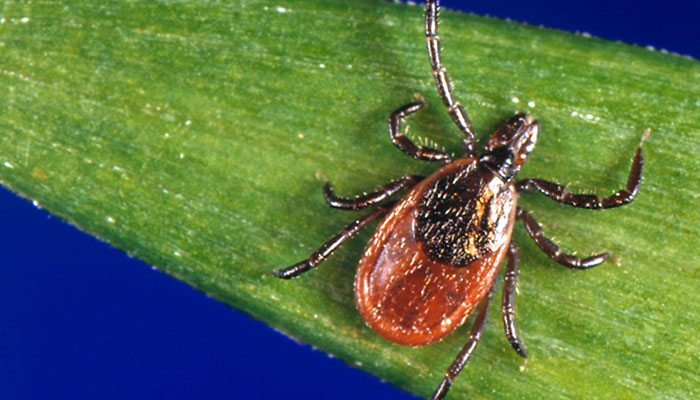Powassan virus outbreak: Four cases confirmed in Connecticut
Powassan virus is primarily transmitted through the bite of infected black-legged ticks
August 21, 2023

Four cases of the Powassan virus have been confirmed in Connecticut, as announced by state health officials.
As concerns about tick-borne diseases rise, here's a comprehensive overview of the situation, its implications, and preventive measures.
Outbreak in Connecticut
The patients affected included two elderly men from Middlesex and Litchfield counties, and two women from Windham and Litchfield counties, all of whom became ill during July.
Characteristics and risks
The Powassan virus is primarily transmitted through the bite of infected black-legged ticks. The virus can lead to a range of symptoms, from mild flu-like illness to severe central nervous system disorders. The DPH revealed that severe cases can result in fatal outcomes and long-term health complications.
Confirmation and health impacts
Laboratory tests performed at the Centers for Disease Control and Prevention Laboratory confirmed the presence of antibodies to the Powassan virus in the patients.
The affected individuals had reported tick bites and had experienced central nervous system diseases. While they have been discharged and are in recovery, this incident highlights the serious health risks associated with tick bites.
Rising tick threat and health challenges
Dr Goudarz Molaei, a chief scientist at the Connecticut Agricultural Experiment Station, emphasised the increasing threat of ticks and tick-borne diseases.
The state has witnessed a notable rise in tick submissions, particularly black-legged ticks, compared to previous years. The emergence of invasive tick species further increases public health challenges.
Prevention and protection
State officials and health experts underscored the importance of preventive measures to mitigate the risk of Powassan virus transmission. Residents are advised to use insect repellent, avoid tick-prone areas, and perform thorough tick checks after outdoor activities. Taking these precautions can significantly reduce the likelihood of infection.









